Fast-growing screening plants to avoid if you want to keep your garden in check (and your neighbours on your good side)
Not all plants for privacy are a welcome addition to your garden

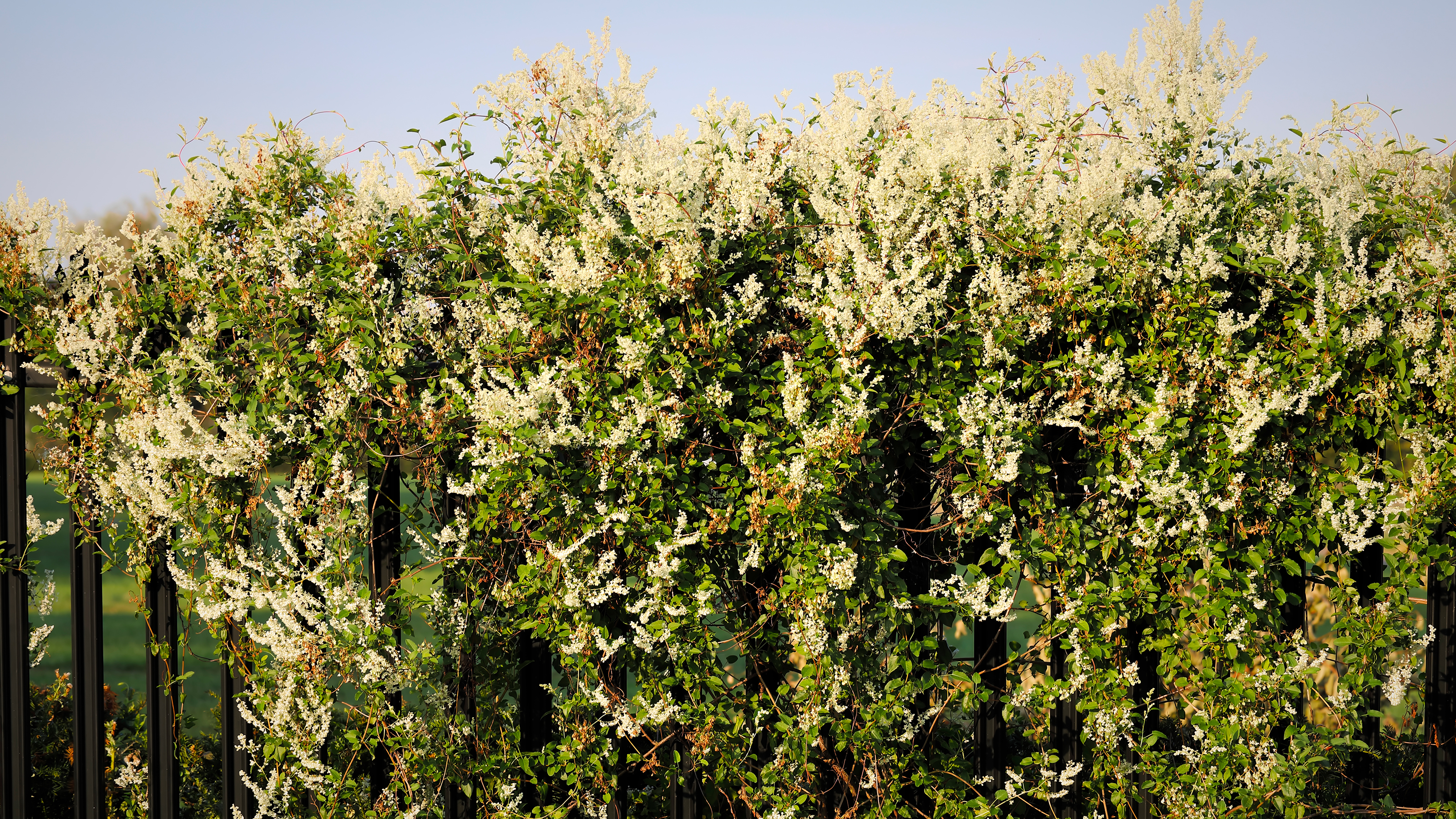
Sign up to our newsletter for style inspiration, real homes, project and garden advice and shopping know-how
You are now subscribed
Your newsletter sign-up was successful
Homeowners across the UK are on the lookout for fast-growing screening plants, and it’s not hard to understand why. As well as offering the chance to block out the prying eyes of your neighbours, they can also add natural beauty to your garden. But there are some fast-growing screening plants you should avoid.
Yes, while natural greenery is one of the best garden screening ideas out there, it’s fair to say that it comes in so many different shapes and forms. From fast-growing privacy trees to fast-growing hedges and even fast-growing climbing plants, there are so many different screening plants to choose from. And that's why it’s so easy to choose the wrong option for your garden.
To combat this, we’ve spoken to the experts and focused on the fast-growing screening plants you should avoid so that you can focus on choosing the right screening plants for your garden.
Fast-growing screening plants to avoid
While fast-growing screening plants can be a great way to hide an ugly fence, it’s important to note that growing plants on the wrong side of the fence (i.e. on your neighbour’s side) can cause some serious neighbourly disputes.
And if you want to keep your neighbours on your good side while also keeping your garden in ship-shape condition, you definitely want to avoid these five fast-growing screening plants.
1. Bamboo

While bamboo offers the chance to add an exotic, drought-tolerant plant to your garden, experts have issued a warning to those looking to plant bamboo. That’s because bamboo is incredibly invasive and can quickly take over your garden… and even your neighbour’s, too.
‘Bamboo makes a really good screening plant and is very popular,' says Morris Hankinson, director of Hopes Grove Nurseries. 'However, if it is not planted with a root barrier in place, bamboo can spread fast, take over a garden and your neighbour's garden, plus cause problems with house foundations.’
Sign up to our newsletter for style inspiration, real homes, project and garden advice and shopping know-how
In fact, when bamboo invaded a Hampshire house in 2022, it resulted in over £100,000 worth of damage!
‘In this case, it would need expert removal,’ adds Morris. ‘If you do want bamboo as screening, plant it with a trench around deep enough that the roots can’t escape and place concrete slabs into the trench or bamboo protection material.’
‘Alternatively, and perhaps a better idea, is to plant bamboo into containers so that there is no chance the roots can get invasive.’

Morris Hankinson is the founder and managing director of Hopes Grove Nurseries Ltd, the UK’s only specialist grower-retailer of hedging plants. He established the thriving business in 1992, shortly after graduating with a Commercial Horticulture Degree from Writtle College, Essex.
2. Leyland Cypress
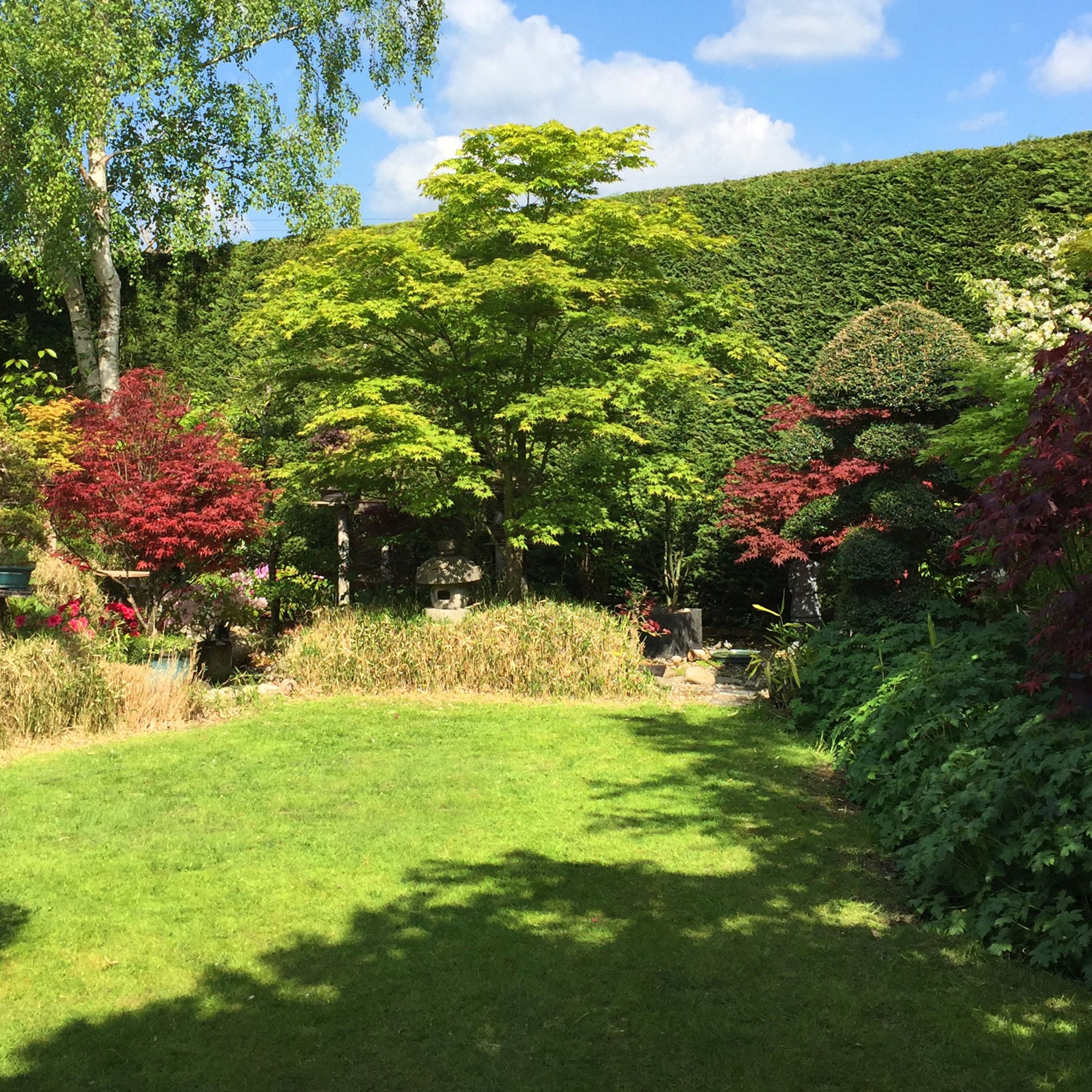
At first glance, Leyland cypress seems like a great fast-growing screening plant. After all, it’s considered to be one of the best privacy trees for small gardens. But it’s important to question if this plant really is the right option for your garden, as some call it a nuisance.
‘This is a conifer that can grow up to 90cm per year, meaning that it very quickly becomes unmanageable. It can often grow up to 15m tall if you were to let it grow high,' explains John Clifford, garden expert at Gardenstone.
‘This tree also requires a lot of maintenance due to its fast-growing speed, and you'll need to regularly trim it to maintain a smaller size and a controlled shape. Similarly to bamboo, Leyland cypress roots can spread aggressively. This means that damage to foundations, pipes, wires, etc is likely, which can be costly to fix.’
You can’t really grow Leyland cypress in pots, either, which is why this is one of the top fast-growing screening plants to avoid.

John Clifford is a director of Gardenstone, a leading garden landscaping retailer based in the UK. With over 30 years in the gardening industry and continual work alongside The National Trust, John has amassed an extensive range of gardening and planting knowledge. Alongside his younger son, John has built a strong reputation for Gardenstone as a trusted source for both high-quality garden products and expert gardening advice.
3. Russian Vine
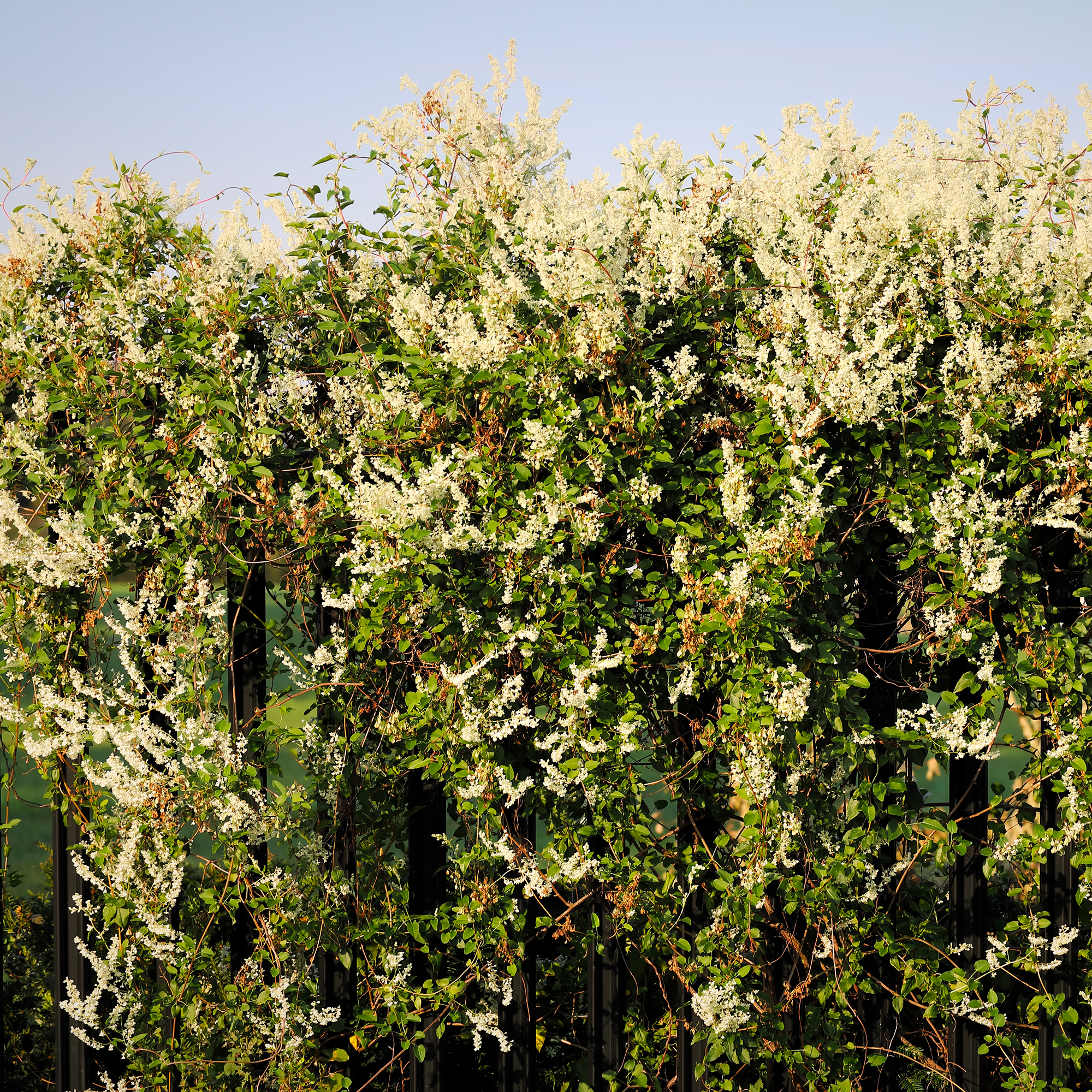
Many people choose fast-growing screening plants because they can grow at high speeds, ultimately offering increasing privacy levels from nosy neighbours.
But while this fast-growing nature seems like a good thing, it’s also important to understand that these plants can quickly grow out of control. Like the Russian vine and its beautiful white flowers, for example.
John says, ‘Russian vine is well known for its growth speed, and it can grow up to 30cm in one growing season. It has an extensive root system, making it tough to fully remove when you want to get rid of it, and it's incredibly hardy.’
He adds, ‘Just because something is easy to grow, doesn't mean that it should be grown everywhere, and Russian vine is a perfect example of this, despite its bright white attractive flowering.’
4. English Ivy
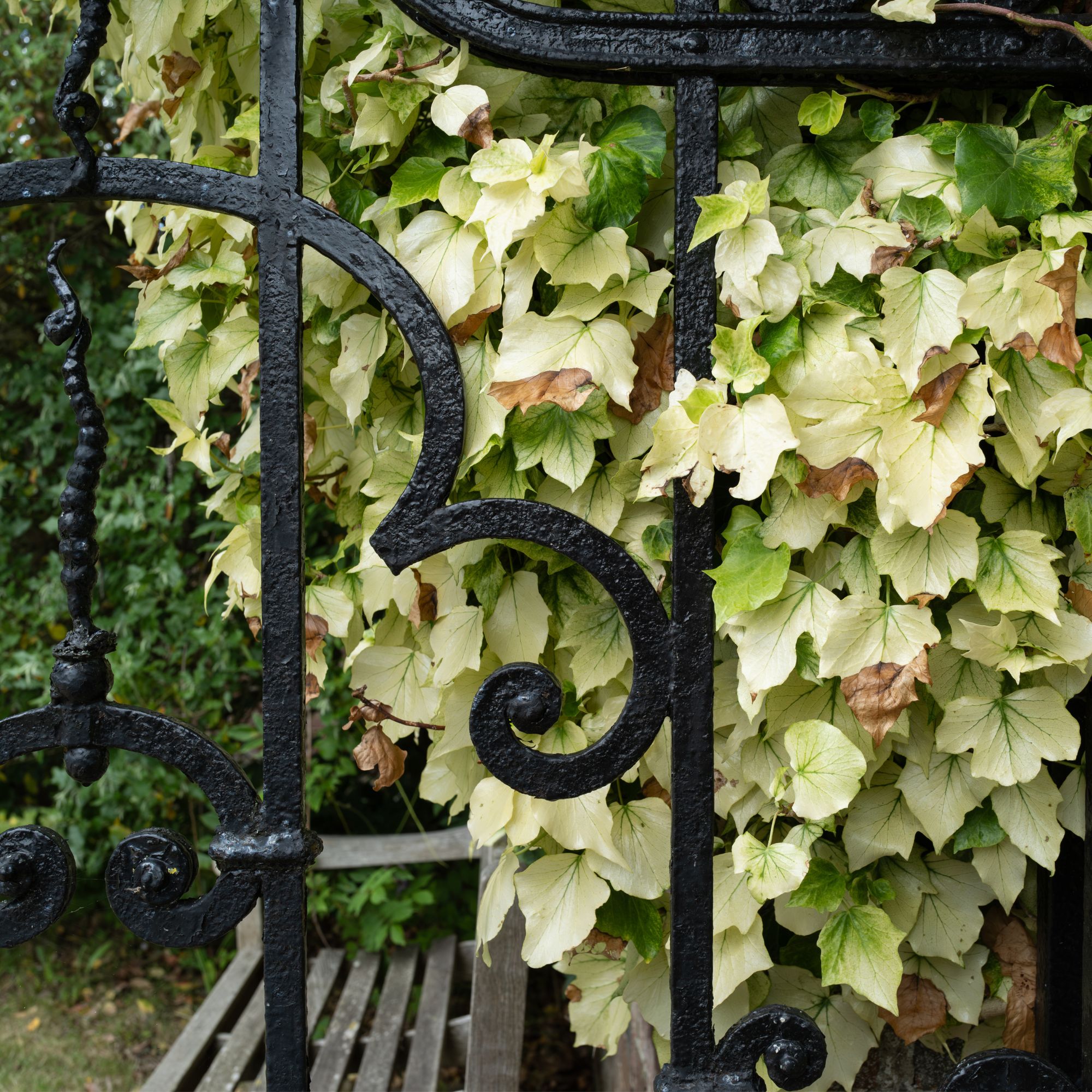
There are so many ways to use ivy in the garden, and it’s safe to say that English ivy has seen a resurgence in popularity over the years. But you shouldn’t forget why it was considered to be a nuisance in the first place. As with every plant, there are positives and negatives.
Morris says, ‘English ivy is wonderful for wildlife and makes a really good screening plant. It will provide nesting space and food for wildlife along with growing fast enough to give good privacy. However, it can climb walls and fences and annoy the neighbours if left to grow without proper pruning.’
But while we’d call it a fast-growing screening plant to avoid, that’s not to say that you can’t have it if you want to make the most of these mottled leaves and climbing qualities.
‘Excess growth can be cut back in mid-spring, and it can also be hard pruned if needed in early spring,’ advises Morris. ‘However, if you do have an unruly Ivy, even a summer cut will be fine. Always check there aren’t any nesting birds and wear gloves as it can irritate skin.’
5. Anything that doesn’t suit your garden
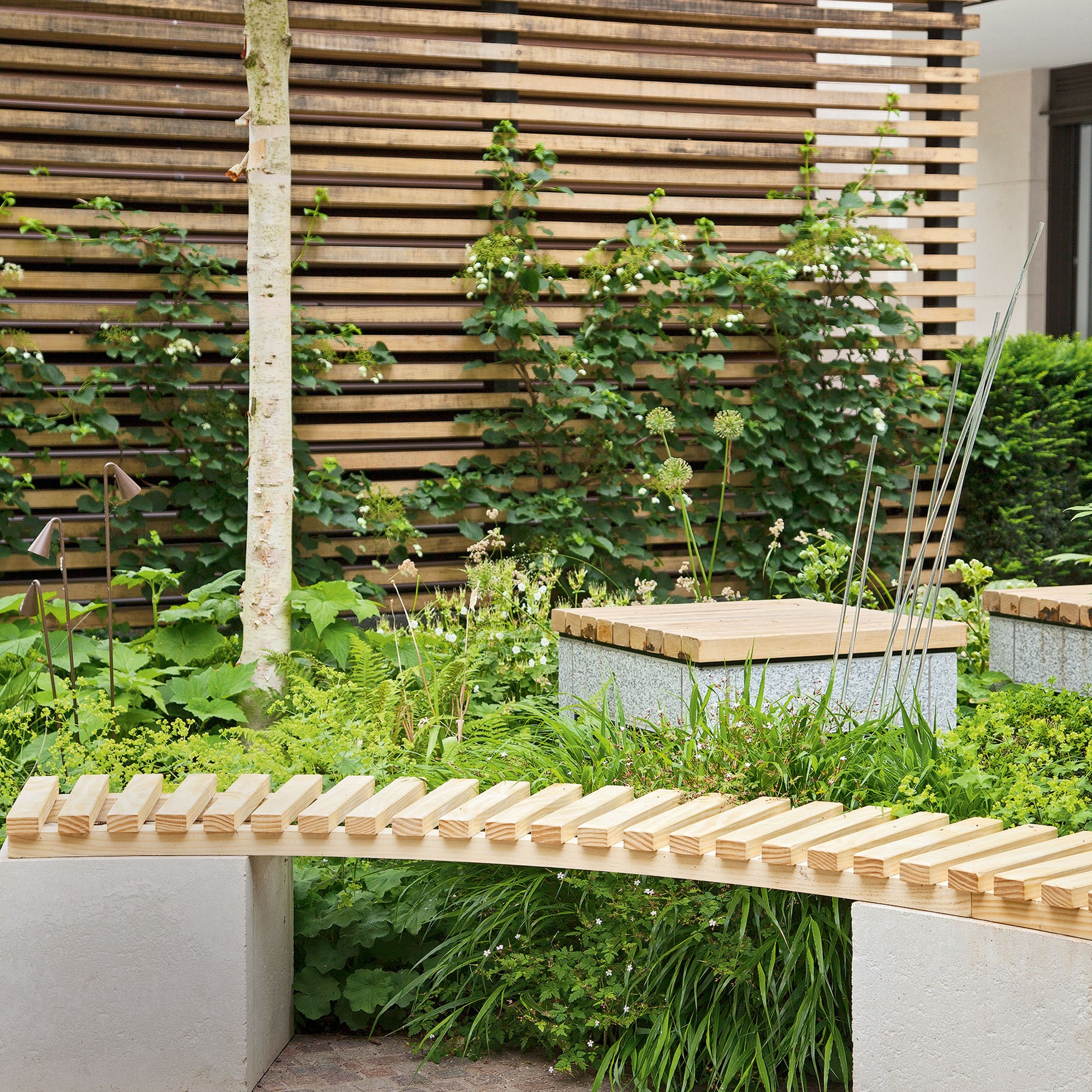
Although the fast-growing screening plants above prove that certain plants should be avoided in all gardens across the UK, it’s also important to consider your own personal garden when choosing screening plants.
Morris explains, ‘For example, if you have a small garden and only want lower growing screening plants, don’t pick plants that grow much bigger than that. Also, know that most screening plants will need pruning once or twice a year and without that, they may get too big.’
‘However, if you have a larger garden and want fast-growing, tall screening then you can go for something bigger and prune it as needed once or twice a year. So, rather than a downside to the plants, it is more about understanding what you need, and caring for it well.’
Fast-growing screening plants to buy instead
Although it’s clear to see that there are many fast-growing screening plants to avoid, we wouldn’t be doing our jobs properly if we didn’t equip you with solutions. So, these are the best fast-growing screening plants to buy instead:
- Japanese privet trees: Pick up a 7-litre potted tree with a 25-30cm head at Crocus.
- Wisteria: Stock up on different sizes of romantic climbing wisteria at Crocus.
- Hawthorn: Buy 5 hawthorn hedging plants from B&Q for just £24.99.
- Photinia: Grab a 2-litre pot of this ‘Red Robin’ screening tree at Crocus.
- Alder: Choose from a variety of alder hedging at Harrods Outdoors.
- Clematis: Buy clematis 'Apple Blossom' from Thompson & Morgan for pink blooms.
- Climbing honeysuckle: Snap up a 9cm potted climbing honeysuckle from Amazon.
FAQs
What is the best plant to block neighbours?
When looking to block out neughbours with natural screening, it’s often easier to choose the type of plant before honing in on a specific plant. In fact, it’s best to opt for climbing plants, deciduous trees, or large shrubs.
These will offer you the height that you want, as well as the evergreen nature that will keep your neighbours out of eyeshot all-year-around.
Then, you can research specific plants that suit your specific garden aesthetic, as well as your gardening ability. After all, you don’t want to choose something high-maintenance when you don’t have the time or the tools to keep it in shape.
What is the fastest-growing shrub for privacy from neighbours?
There are many different fast-growing shrubs out there, including cherry laurel, bay laurel, and even privet. Any of these options will offer you the privacy you want, while also adding a natural layer to your garden.
However, it’s important to do your research before buying any fast-growing plants for your garden. You need to make sure that you understand the maintenance, the growing requirements, and even the laws surrounding these privacy plants.
Yes, you definitely want to avoid these particular fast-growing screening plants…

Lauren Bradbury has been the Content Editor for the House Manual section since January 2025 but worked with the team as a freelancer for a year and a half before that. She graduated with a Bachelor’s degree in English and Creative Writing from the University of Chichester in 2016. Then, she dipped her toe into the world of content writing, primarily focusing on home content. After years of agency work, she decided to take the plunge and become a full-time freelancer for online publications, including Real Homes and Ideal Home, before taking on this permanent role. Now, she spends her days searching for the best decluttering and cleaning hacks and creating handy how-to guides for homeowners and renters alike, as well as testing vacuums as part of her role as the Ideal Home Certified Expert in Training on Vacuums, having spent over 110 hours testing different vacuum models to date!